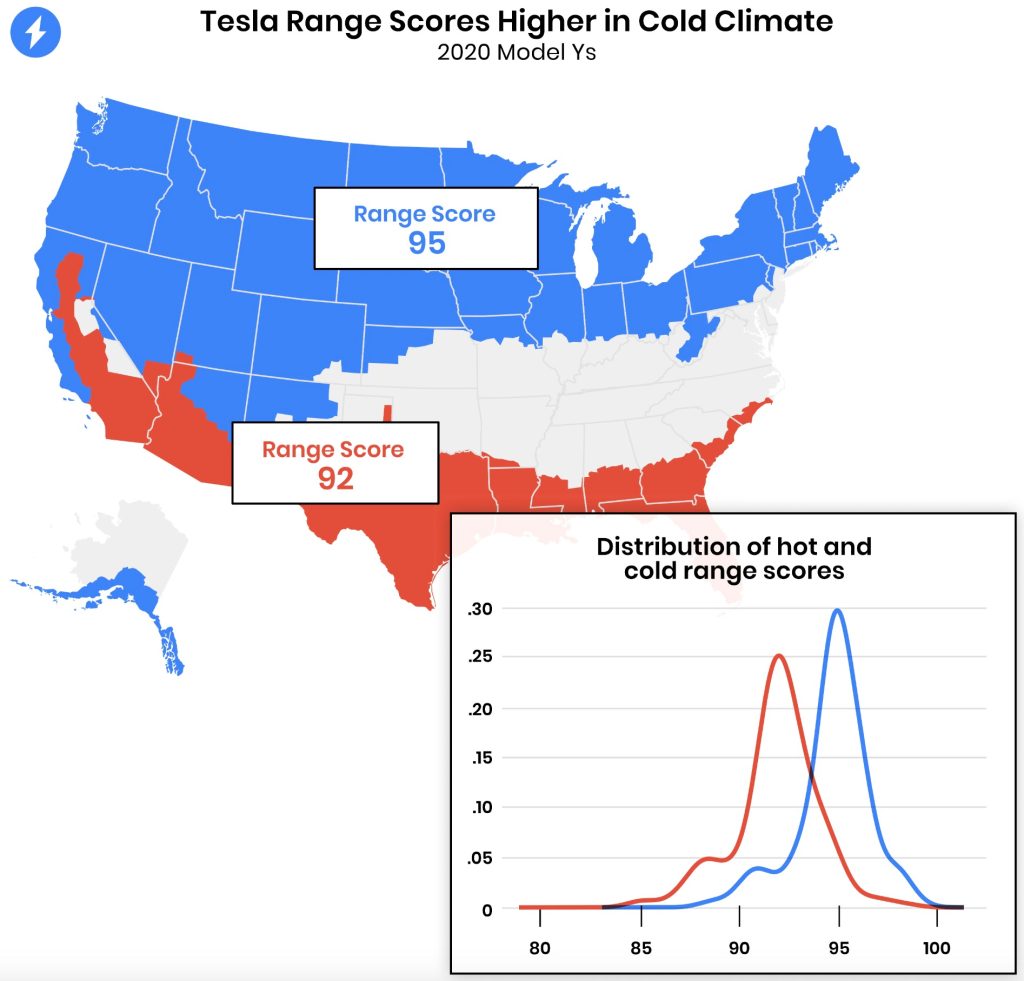
While colder weather negatively affects the range of Tesla electric vehicles and electric vehicles in general, it may actually be good for the long-term longevity health of EV battery packs, according to a new study.
Recurrent, which has access to data from over 12,500 Tesla vehicles in the US through its software service, has been releasing interesting new looks into Tesla batteries based on that data.
Last month, we reported on the data showing that Tesla battery longevity is not negatively affected by frequent Supercharging – putting to rest a long-standing myth about EVs.
Now, the firm is using its data to show how different climates can have an impact on battery longevity.
Recurrent assigns a “range score” to each battery it tracks; it is basically the percentage of range retention. For example, a Range Score of 90 would mean that the battery pack has retained 90% of its original range.
The firm has found that Tesla vehicles in colder and coastal climates have, on average, a better Range Score than Tesla vehicles in hotter climates in the US:

Top comment by Anthony
Not surprised. This applies to all batteries. I live in a very hot climate and owned a Gen 1 Volt and by the end of 7 years I was getting ~28 miles instead of 35 on a regular basis. That's a 20% degradation, which is a ton considering the 35 miles of range was only like 60% of the original pack capabilities.
Extreme cold negatively affects the range of electric vehicles as active thermal management spends a lot of the pack’s energy to regulate the temperature. That’s well known.
But it’s new information, for me at least, that for the longevity of the battery pack, colder temperatures might actually be good – or at least slightly better than hotter climates.
Recurrent gives us a vague explanation as to why that might be:
Batteries are a lot like people – always aging. We can do things to reduce these effects, like exercise and sleep, or things that accelerate them, such as smoking and tanning. The same is true of batteries, and being exposed to heat is a lot like smoking cigarettes. Environmental heat contributes extra energy to the electrochemical reactions in the battery, which can accelerate unwanted chemical reactions that age the battery prematurely. The generally accepted threshold for accelerated battery degradation is around 30 degrees C, or around 86 degrees F.
Hopefully, this information could be useful to some Tesla owners.
FTC: We use income earning auto affiliate links. More.


Comments